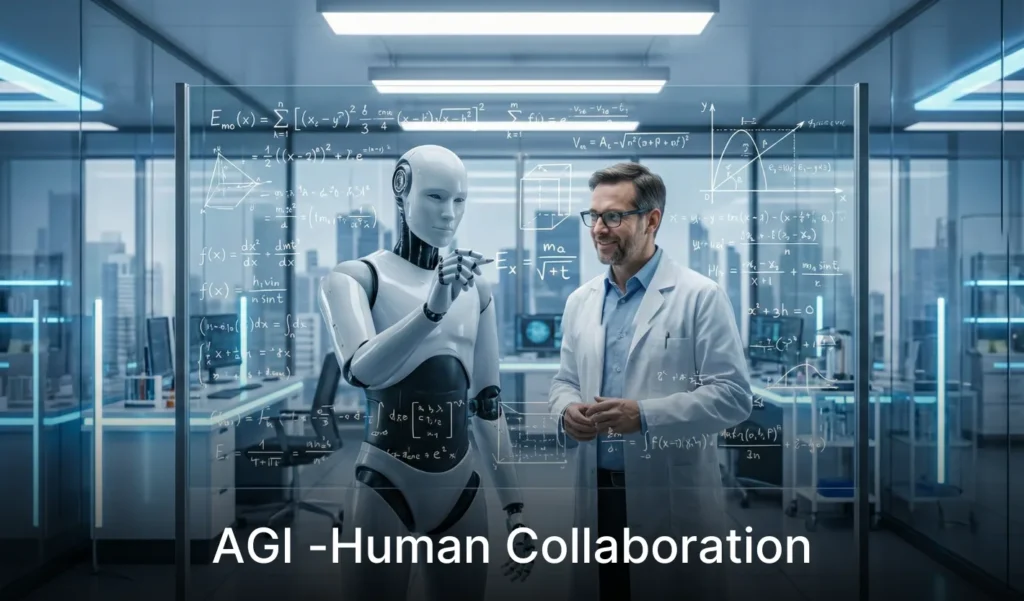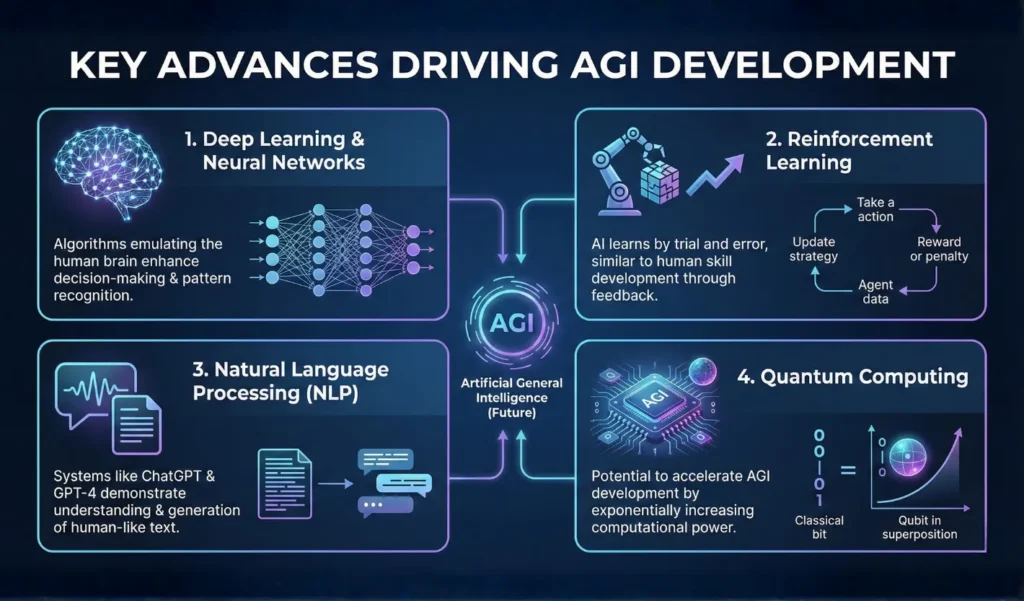

Are you ready to disrupt with AI? Join our Hackathon today! Click to Register
By WebOsmotic Team | Published on March 11, 2025
Summarize Article

Table of Contents
TogglePicture a future where machines think, reason, and solve problems like humans. A future where an AI helper doesn‘t just execute preprogrammed instructions but knows your mood, anticipates your needs, and makes autonomous decisions. That’s the promise of Artificial General Intelligence (AGI)—a type of AI that has human-like mental faculties. But are we near such a future? Let‘s see.
In contrast to narrow AI, which is programmed for a particular task (e.g., virtual assistants or autonomous vehicles), Artificial General Intelligence (AGI) is a machine’s capacity to accomplish any intellectual task that a human can. AGI can learn, reason, comprehend context, and evolve in new situations without being explicitly programmed. It is the holy grail of AI research, with the goal of developing autonomous machines with human-like intelligence.
Whereas existing AI systems are very good at specific tasks, they are not generally problem-solving. AGI, however, would be able to transfer knowledge between domains, reason abstractly, and make decisions on its own.
The path to AGI has progressed through a number of important milestones:
| Time Period | Milestone | Description |
|---|---|---|
| 1950s – 1980s | Early AI Research | Focused on rule-based programming and symbolic reasoning. |
| 1990s – 2010s | Rise of Machine Learning | Machine learning and deep learning revolutionized AI capabilities. |
| 2020s – Present | Breakthroughs in AI | Advances in neural networks, reinforcement learning, and NLP bring us closer to AGI. |
| 2030s – Future? | Potential AGI Emergence | Experts predict AGI could emerge in the next few decades, but challenges remain in replicating human cognition. |
AGI is usually classified depending on how intelligent and conscious it is:

| Benefit | Impact |
|---|---|
| Automation of Complex Tasks | AGI can replace humans in labor-intensive or hazardous jobs. |
| Healthcare Advancements | Personalized medicine, early disease detection, and robotic surgeries. |
| Scientific Discovery | AGI can accelerate research in physics, chemistry, and space exploration. |
| Economic Growth | Increased productivity and efficiency across industries. |
| Human-AI Collaboration | Enhances creativity and innovation by working alongside humans. |
The most significant challenges are computational constraints, bias in data, ethical issues, and the nature of human consciousness. The existing AI technology is based on huge amounts of data, while human intelligence uses much less data and is more efficient.
Although AGI may outshine human intelligence, measures such as ethical programming and legislation can curb its risks. The possibility of AGI rebelling against humankind, as depicted in science fiction, is mostly hypothetical but is still debated.
Transparency, ethical AI development, and international collaboration will be important in ensuring AGI is positive. Governments and technology leaders need to work together to develop policies that avoid abuse and promote fairness.

The path to Artificial General Intelligence is full of promises, challenges, and ethical questions. Though we are not yet there, lightning-fast progress hints that AGI is imminent. As we continue to approach, it‘s very important that AGI is developed in accordance with human values, safety, and advancement.
AGI can accomplish a variety of cognitive tasks, while conventional AI is for particular purposes, such as image recognition or language translation.
Predictions differ, but specialists are confident that AGI may arise in the next decades, around 2050.
Though AGI may automate most work, it can also lead to new professions demanding human-AI cooperation.
Top AI research institutions, such as OpenAI, DeepMind, and universities globally, are developing neural networks, reinforcement learning, and self-enhancing algorithms.
AGI can replicate emotions from data, but authentic emotional consciousness is still a problem.
WebOsmotic remains at the forefront of emerging AI innovations. Whether you‘re a company in need of integrating AI solutions or an enthusiast willing to learn the latest technology trends, we offer professional insights and solutions that are specific to your requirements. Contact us today and join the future of AI.
Unlock exclusive insights and expert knowledge delivered straight to your inbox